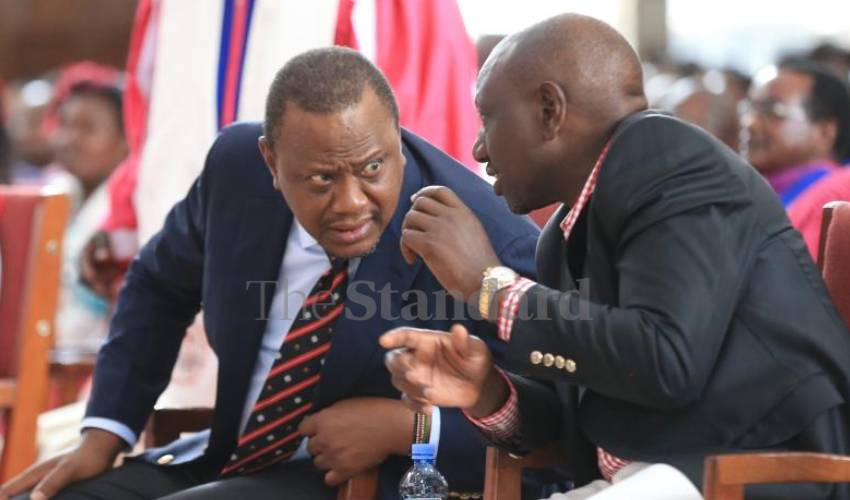×
The Standard e-Paper
Home To Bold Columnists

President Uhuru Kenyatta with DP William Ruto at AIC Milimani, Nairobi, January 26, 2020. [Stafford Ondego, Standard]
Deputy President William Ruto yesterday denied that he has been a stumbling block to the attempts by the church to reconcile him with his boss, President Uhuru Kenyatta.